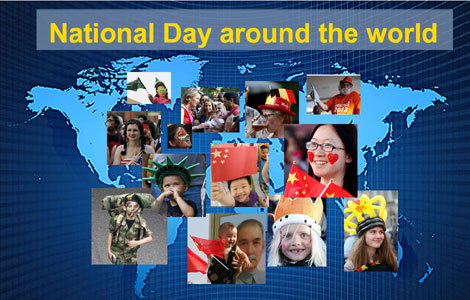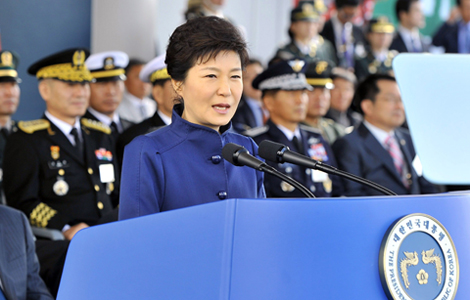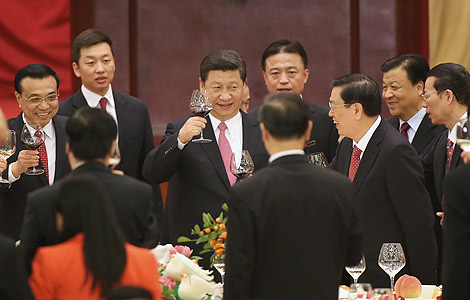New free trade zone gets a big US bank
Updated: 2013-10-01 10:25
By Michael Barris in New York (China Daily)
|
||||||||
The world's latest economic-reform model is occupying 11 square miles - and the attention of at least one US bank.
Citigroup Inc is set to launch a branch in Shanghai's new free-trade zone Tuesday, making it among the first foreign banks to chase business in China's new economic experiment. The New York-based bank - the third-largest US lender by assets - won regulatory approval for its Citibank China Co Ltd on Sunday to start preparations for a branch in the new trade zone in Shanghai's Pudong district.
"China is a priority market," Citi Asia-Pacific Chief Executive Stephen Bird was quoted as saying in the Wall Street Journal.
Citigroup's interest in the new free trade zone - which the Chinese government has described as a test site for broader reforms such as allowing companies to convert yuan more easily to foreign currencies and freeing up the setting of interest rates - comes as the Asia-Pacific region continues to drive revenue for the bank despite slowing economic growth in China. Last year, Citi generated 21 percent of its 2012 revenue from the region, up from 17 percent in 2010, according to an earnings statement.
Citibank China Chairman and CEO Andrew Au on Sunday said the company looked forward to "promoting the development of a foreign currency exchange, interest-rate reform, foreign trade financing and fund management in the free trade zone".
So far, overseas banks have shown a coolness toward the most ambitious financial reforms seen in China in a decade. Besides Citi, Sunday's launch included just one other foreign financial institution - Singapore's DBS Group. That indifference may stem from concern about the scant detail the State Council provided on the financial sector's revamp, wrote Barclays analyst May Yan.
Although Yan called the announced framework for the free trade zone "in line with expectations", she was concerned by the lack of "critical implementation details" and information on whether the breakthrough policies in the zone could be transferred successfully to "the rest of China". Without such a mechanism, the Shanghai zone could languish for years without seeing significant business, Yan wrote.
The State Council identified the Shanghai free trade zone's five major goals as speeding up government function, expanding investment areas, promoting trade development, deepening financial innovation and improving legal system protection. The government also said the area would see six service sectors opened up: financial, transportation, commerce, professional, cultural and social.
A banking regulator familiar with the approval process told the Financial Times that very few applications had been submitted by foreign banks and virtually all of the banks that had applied were accepted. "Many banks have made inquiries but they are still trying to understand what the zone will involve and whether it is worth setting up a branch there," the regulator said.
Observers said the government is trying not to overplay the zone's significance - reflected in the fact that the highest-ranking official at the launch ceremony was Commerce Minister Gao Hucheng.
Many of the specific policies for the zone are still being debated. At a news conference, Liao Min, head of the Shanghai arm of the China Banking Regulatory Commission, said the government would adjust the regulatory standards applied to banks in the zone to give them a freer hand to operate, while also ensuring that external risks would not spread to China.
michaelbarris@chinadailyusa.com
(China Daily USA 10/01/2013 page1)
Most Viewed
Editor's Picks

|

|

|

|

|

|
Today's Top News
US government partial shutdown begins
Pentagon reassures China over India ties
China committed to deepening reform
Chinese embassy in Syria attacked
Trending news across China
Li: China confident in meeting economic targets
New FTZ gets a big US bank
China, India join hands on border stability
US Weekly

|

|














